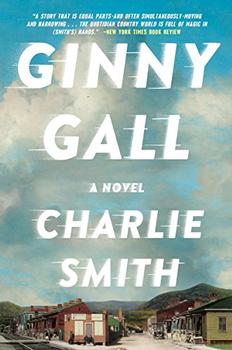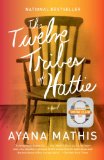Summary | Excerpt | Reading Guide | Discuss | Reviews | Read-Alikes | Genres & Themes | Author Bio

In this beautifully written debut, Anna Jean Mayhew offers a riveting depiction of Southern life in the throes of segregation and what it will mean for a young girl on her way to adulthood and for the woman who means the world to her.
On a scorching day in August 1954, thirteen-year-old Jubie Watts leaves Charlotte, North Carolina, with her family for a Florida vacation. Crammed into the Packard along with Jubie are her three siblings, her mother, and the family's black maid, Mary Luther. For as long as Jubie can remember, Mary has been there cooking, cleaning, compensating for her father's rages and her mother's benign neglect, and loving Jubie unconditionally.
Bright and curious, Jubie takes note of the anti-integration signs they pass and of the racial tension that builds as they journey further south. But she could never have predicted the shocking turn their trip will take. Now, in the wake of tragedy, Jubie must confront her parents failings and limitations, decide where her own convictions lie, and make the tumultuous leap to independence.
Infused with the intensity of a changing time, here is a story of hope, heartbreak, and the love and courage that can transform us from child to adult, wounded to indomitable.
Paperback original.
 Angela Davis-Gardner, author of Butterfly's Child
A beautifully written and important novel. Set in the 1950s South, it deals with race relations in an original, powerful way. It's also a great story about complicated family relationships, told with humor, delicacy, and penetrating insight. I wish I had written this book.
Angela Davis-Gardner, author of Butterfly's Child
A beautifully written and important novel. Set in the 1950s South, it deals with race relations in an original, powerful way. It's also a great story about complicated family relationships, told with humor, delicacy, and penetrating insight. I wish I had written this book. Karen White, New York Times bestselling author
A beautiful book that fans of The Help will enjoy.
Karen White, New York Times bestselling author
A beautiful book that fans of The Help will enjoy. Lee Smith, author of Last Girls and Fair and Tender Ladies
Written with unusual charm, wonderful dialogue, and a deeply felt sense of time and place, The Dry Grass of August is a book for adults and young people both a beautifully written literary novel that is a real page-turner, I have to add. Fast, suspenseful, and meaningful. I read this book straight through.
Lee Smith, author of Last Girls and Fair and Tender Ladies
Written with unusual charm, wonderful dialogue, and a deeply felt sense of time and place, The Dry Grass of August is a book for adults and young people both a beautifully written literary novel that is a real page-turner, I have to add. Fast, suspenseful, and meaningful. I read this book straight through.
If you liked The Dry Grass of August, try these:

by Charlie Smith
Published 2017
A sweeping, eerily resonant epic of race and violence in the Jim Crow South: a lyrical and emotionally devastating masterpiece from Charlie Smith, whom the New York Public Library has said "may be America's most bewitching stylist alive."

by Ayana Mathis
Published 2013
A debut of extraordinary distinction: through the trials of one unforgettable family, Ayana Mathis tells the story of the children of the Great Migration, a story of love and bitterness and the promise of a new America.